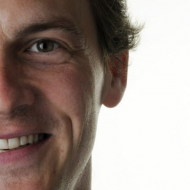Stephen Earnest of ATD kicks-off the 2015 ATD TechKnowledge Conference. Next up is Aaron Dignan, author of the book “Game Frame”. He’s a disruptor, working with some of the world’s leading companies on digital strategy and he’s here to tell us about the responsive organisation and what it means to us…
Opening his speech, Dignan tells us about the creation of “MakerBot”, one of the world’s first financially viable 3D-printers. The maker of this printer wanted something awesome for printing real-life objects. But the 300000 dollar price-tag was simply was not viable. So he went out to make it himself. A few years later, that printer sells for 2000 dollars and the company making it has been sold for millions.
Dignan says that these sorts of innovations are so much easier in 2014 bring than they were 10 years ago. Finding the people you need to bring an idea to life and scaling up into to something viable is.. well, it’s not easy, but it’s possible. Much more than every before.
How is this possible? According to Dignan, 3 things…
Moore’s law tells us that the power of computing doubles every two years. Today, almost every smartphone user has a personal computer in their pocket that is more powerful than the one that sent a rocket to the moon.
Secondly, the platforms available today are so much better than ever before. Everyone is a potential creator, developer and entrepreneur.. their products can get to markets with ease thanks to the multitude of platforms available.
And finally, the 21st century is networked. The six degrees of separation are apparently now 2.4. If you need people or expertise, you can get them via Twitter or any number of open-source communities. In a click.
Dignan says that if we can’t harness these 3 things, a kid in a garage with an idea will put us out of business. The fundamental challenge of the next decade is to rise up to this challenge before someone else does. But we can’t just train people to be innovators and change. So what can we do?
According to Melanie Mitchell, what you need is a large network with no control, with simple values and rules. If you can nourish this environment, you will get effective “complex behaviour, sophisticated information processing and adaptation via learning or evolution”. Three examples…
Example 1: Take a lesson from ants. Really!
Drop a thousand ants in a new environment and they will organise themselves for experimentation. It starts as chaos: The ants will spread out, check it out and see what they see. No rules, just experimentation. And when they find something good, they will naturally organise themselves around that.
So get yourself a queen-ant that can recruit (make!) new ants, give them a simple set of rules to follow and leave them to it.
Example 2: Share like an immune system.
Your immune system keeps you competitive by adding investment to experimentation. Things-whose-names-I-forget go out into your body and look for new clients, things that need their help. When they find one, they latch on and get to work quickly. And then they work some real magic: They send out a quick and strong signal to their immune system buddies saying “I’ve got something”. And what does the immune system do? It sends help quickly. Communication + responsiveness + investment. Now.
Example 3: The internet
Need I say more?
OK, got it. What next? Dignan is working to help companies transform themselves into responsive organisations. He says we need 6 things….
- 1.Focus on purpose, not profit. This point really got my attention, thinking about my own work. Focussing on profit only leads to fear and static behaviour. You might get more of what you have today, but you won’t get anything new. When new ideas come up, you won’t have the proof required to know you will get profit, so you won’t do it. Focus on purpose and its a whole different game.
- 2.Focus on networks, not hierarchies. 3. Focus on empowering, not controlling. These are the 2 key rules of the new world of work that we have been hearing about for several years. Team managers become network coaches, not micro-managers. And with trust in our people, we recruit and leave them to it.
- Drop planning and work on “emergence”. Plans don’t work. As Dignan puts it: “Plans are lies committed to paper.” To allow us to deal with inevitable future change, we need is a spirit of “we don’t know”. An example of this is “cleaning the room”. We could make a awesome plan to get it all in order. But if something changes, we will fail. On the other hand, if we have one simple rule like our ant friends, we can just get to work, naturally dealing with whatever comes up. The key? The ant-queen needs to trust the cleaners.
- Efficiency vs. Adaptivity. You need to get people comfortable with change.
- Privacy vs Transparency. If you want to profit from networks and get that immune-system-responsiveness you need sharing. Jane Bozarth, author of the book “Show Your Work” talks regularly about the benefits of letting others know what you are doing. Later on today, I will hear JD Dillon talk about how Kaplan is working on breaking down silos and releasing organisational potential.
So, if you want a responsive organisation, you know what to do. Get to work!
Thanks for reading!
@dan_steer


Leave a comment